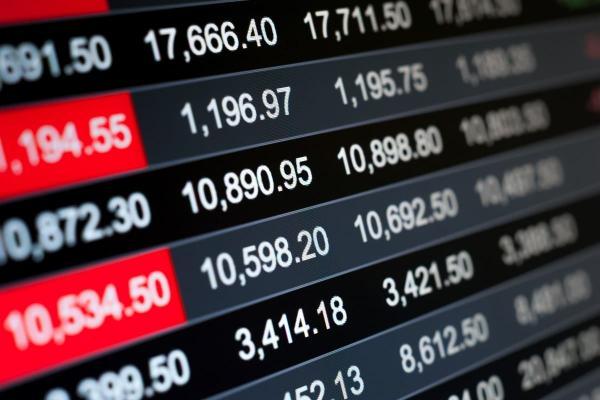

What Is the Russell 2000 Index?
Russell 2000 Definition
The Russell 2000 index measures the performance of approximately 2,000 smallest-cap American companies. The index is market-cap weighted, meaning the weight of its components changes relative to the total market capitalisation.
The index is operated by FTSE Russell of the London Stock Exchange (LSE) Group. The subsidiary also maintains other indices that it shouldn't be confused with. The Russell 3000 index lists the largest 3,000 US companies. The biggest 1,000 companies out of these are listed on the Russell 1000 index. The rest, which is small/mid-caps, is a subset of the smaller components within Russell 3000 and belongs to Russell 2000.
Understanding the Russell 2000 Companies

The constituents for Russell 2000 aren't chosen by a committee or the groups operating it. Instead, they're calculated according to a formula based on a combination of their market cap and current index membership.
Rebalancing takes place every June on the last trading day. The current composition includes 2,021 stocks; the top-10 companies are as follows:
|
Name |
Industry |
Weight (%) |
|
Novocure Ltd |
Medical Equipment & Devices |
0.39% |
|
Arrowhead Pharmaceutical |
Biotech & Pharma |
0.33% |
|
Haemonetics Corp |
Medical Equipment & Devices |
0.31% |
|
Generac Holdings Inc |
Electrical Equipment |
0.30% |
|
Teladoc Health Inc |
Healthcare Facilities & Svcs |
0.29% |
|
Amedisys Inc |
Healthcare Facilities & Svcs |
0.29% |
|
Science Applications Int |
Technology Services |
0.27% |
|
Trex Inc |
Construction Materials |
0.26% |
|
Eastgroup Properties Inc |
Real Estate |
0.26% |
|
Deckers Outdoor Corp |
Apparel & Textile Products |
0.26% |
Not all types of stocks are considered eligible to be included in the Russell 2000. These are the defining characteristics that all constituents must have. Otherwise, they're excluded from the list:
- Must be traded on US exchanges
- No less than a $1.00 closing price on the rank day in May
- A total market capitalisation of no less than $30 million
- More than an absolute 5% of shares available
- No royalty trusts, LLCs, limited partnerships, closed-end investment and blank-check companies
Factors Influencing the Russell 2000 Index Price

Primarily, the value of the index is affected by whatever happens in the companies listed on it. Investors should also keep an eye on sectors reflected in the index constituents. It could be events occurring in healthcare, finance, technology, energy, etc.
Just like any financial asset, Russell 2000 doesn't exist in a vacuum. Therefore, multiple interrelated or even seemingly unrelated factors can play a significant role in its value. Since it's a barometer for the US economy, the index is influenced by similar determinants: political news, market corrections, speculative behaviour, dollar strength/weakness, demand for certain commodities, etc. It's also essential for traders to be aware of the US geopolitical tensions with other regions, such as China, Middle Eastern countries and South-East Asia.
Advantages and Disadvantages of Russell 2000
Before you can make the right decision on whether this type of trading is for you, thoroughly research the topic. Some of the reasons to consider buying Russell 2000 are:
- Exposure to the entire market rather than narrow sectors
- Historically outperforming bigger indices during periods of falling interest rates
- Constituents often outperform competitors at the start of a bull market
- Decent yield for investors (higher than NASDAQ 100 Index and comparable to S&P 500 Index)
- Has the potential to grow easily
Here are the downsides of the Russell 2000 index:
- Associated with higher fees
- More volatile than large-cap stocks
- Appears to be slightly risky
What Is the Russell 2000 Index CFD Trading?

If you want to work with the Russell 2000 or venture into financial markets in general, CFDs (Contracts for Difference) might be a match for you. But before that, you need to understand the technical side and consider its benefits and drawbacks.
What Is CFD Trading?
A CFD is an instrument that lets traders speculate on the price changes across many financial markets such as indices, shares, currencies, bonds, etc. If you make correct predictions, you can profit from rising and falling prices.
The main thing that sets CFDs apart is that you never actually own the asset you are trading with. Instead of making the full physical purchase or sale, you mimic and receive the same profits (losses) as if you owned them.
Advantages and Disadvantages of CFD Russell 2000
Here are the main reasons to consider CFDs in financial markets:
- Flexibility of trading in both directions
- Lower transaction costs
- Tax efficiency
- Ability to open trades with bigger value and leveraged gains
- Access to different types of indices and other assets
The negative aspects include:
- Inherent risks of trading in financial markets
- Leverage may amplify losses
- Not suitable for long-term strategies
Russell 2000 Stocks Trading Strategies
Typically, investors can rely on financial rules of thumb to provide guidance. But an interesting fact about trading Russell 2000 is that conventional pearls of wisdom don't apply. With small-cap stock, it's advised to avoid the purest forms of market timing unless you're a strategic and tactical investor:
- Bullish strategy. It has been noticed that small caps can outperform large ones in bull markets. However, you can expect periods of rising interest rates when the Federal Reserve stops decreasing to stimulate the economy.
- Bearish strategy. Investors buy small-cap stocks when the market seems to be going down for a long time.
Conclusion
Adding small caps to your portfolio diversifies your investments, which is a universally accepted tactic. However, you should always be cautious about investing in any financial asset since past performance doesn't guarantee future results. Fortunately, platforms like Libertex make it possible to improve your skills without risking real money. By registering a free demo account, you can practise with whatever asset you want, and then you can enter the real market.
Disclaimer: The information in this article is not intended to be and does not constitute investment advice or any other form of advice or recommendation of any sort offered or endorsed by Libertex. Past performance does not guarantee future results.
Why trade with Libertex?
- Get access to a free demo account free of charge.
- Enjoy technical support from an operator 5 days a week, from 9 a.m. to 9 p.m. (Central European Standard Time).
- Use a multiplier of up to 1:30 (for retail clients).
- Operate on a platform for any device: Libertex and MetaTrader.